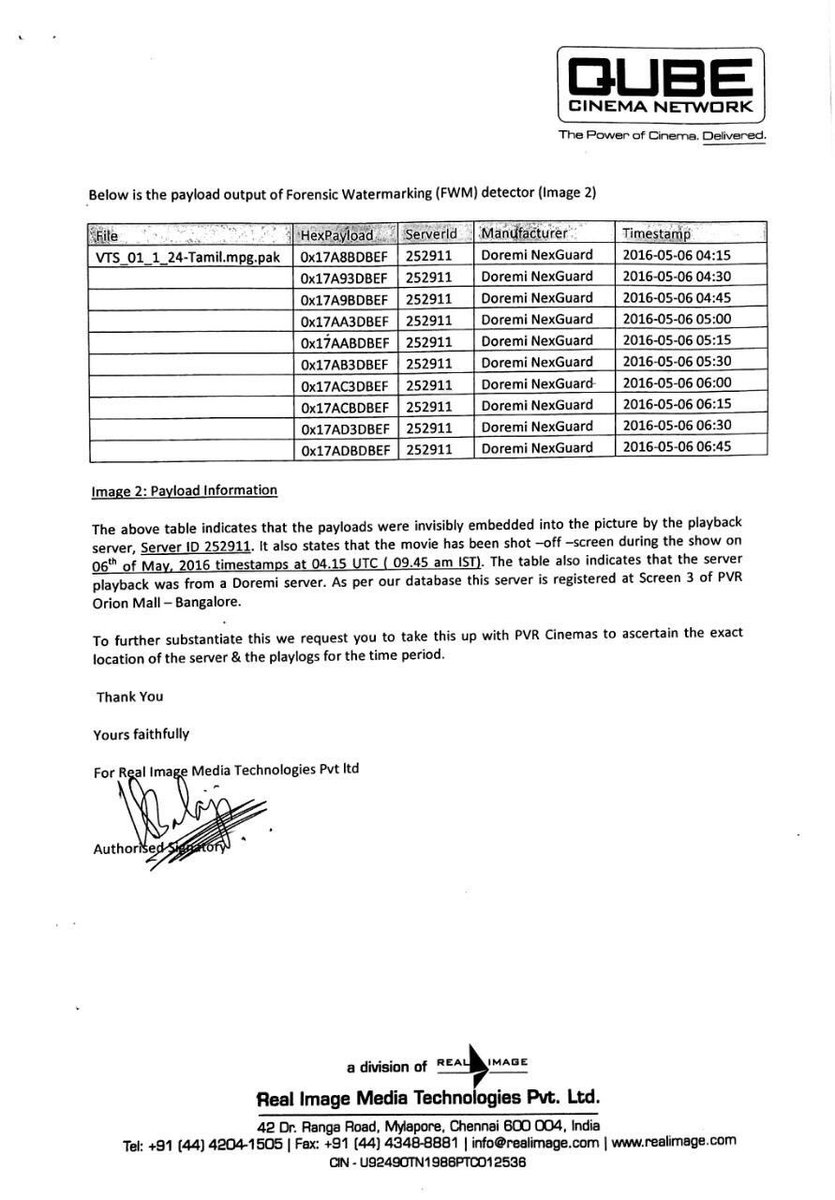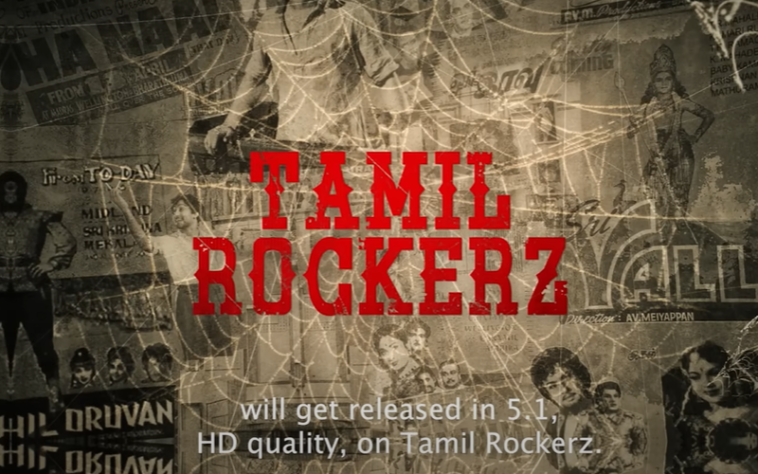What happens when a piracy website threatens to leak a superstar’s film? With only 10 days left for release, the film’s producers are in for a shocker and the movie biz predicts heavy losses. This sets up the premise of Arun Vijay’s Tamilrockerz, a SonyLIV original releasing tomorrow. In the series, the film industry races against the clock to track down the titular piracy group, and Arun Vijay’s cop takes over the case.

While the series is fictional, the notorious piracy group TamilRockers, on which the series is based, is very real, and so are its threats. Take Vijay’s Sarkar, for instance, which was released on November 6, 2018. A day before its release, TamilRockers threatened to upload a HD Print of the film. Through its unverified Twitter handle, the group wrote, “#Sarkar HD Print Coming.” Though their handles were suspended and TamilRockers soon denied any social media presence, Sarkar, among many other titles, eventually fell prey to piracy. So who is behind this piracy racket and how do they function?
Who are TamilRockers?
Most film viewers are arguably familiar with TamilRockers. As per reports, TamilRockers was formed either in 2007 or 2011 by a small group of friends. Today, its members are spread across many countries. While a few from the team are said to be in charge of sourcing film recordings, a few handle uploading. Either way, their tracks are said to be hidden, with their details strictly secured.
Even before the entry of TamilRockers, there were around 3-4 websites that leaked films online. But the history of film piracy does not have its origins in the internet. Before the digital era, such groups benefitted from selling pirated DVDs. The original CD of Dhanush’s Kadhal Kondein (2003) was reportedly priced at Rs 450 and sold 750 copies. But the film’s pirated CDs saw an even bigger profit, with 60K copies sold at Rs 70 each.

An insider’s view
In an interview with VoxSpace, Bhaskar Kumar, who was once an integral part of the TamilRockers group, revealed crucial details about the website. Bhaskar, who parted ways with the group following a fallout, noted that when several CD shops were raided and closed down in 2007, a few people came together to find an alternative on the internet. And that’s how TamilRockers was born.
Think DVD piracy in films and your mind immediately goes to the opening sequence of Suriya’s Ayan. For those who haven’t watched the film, here is what happens: Suriya’s character, who lands from a foreign country, smuggles a CD of a film that is scheduled to release the next day in India. Along with his gang, he then makes different copies out of it and sells them to their dealers. This does not mean that films always get smuggled from abroad. Qube Cinema Technologies, a company that tracks the origin theatre of leaked videos, reportedly found that several Malayalam and Tamil films were leaked from Bengaluru, while Telugu titles were recorded at multiplexes in Delhi.
According to reports, the piracy group pays its members based on its print’s download count.
How TamilRockers get a pirated copy

Bhaskar revealed that many producers, distributors, and theatre owners are involved in this racket. He went on to explain the three ways in which pirated copies are sourced:
- Film studio staff: For movies that have a premiere screening before release, the group is said to work with staff from the film studio. These collaborators are paid Rs 70K to 1 lakh to source the recording
- Theatre owners outside India: They are paid Rs 4 to 10 lakhs for prints
- Contributors: These are people who record films in local theatres and are paid Rs 500 to 1500 per print
Bhaskar also asserted that producers of competing films helped them pirate films on several occasions, to see more profit.
How do they make money?
Since piracy websites release new films online practically for free of cost, most people assume that it is a service. However, they are in it for a bigger business.
The group earns big bucks from advertisements and pop-ups on their websites. Apart from ads, Bhaskar revealed that they make profits in different ways. They sometimes contact the producer and demand a ransom. If their demands aren’t met, they sell it to torrent host sites that pay them in bulk.
Kollywood’s battle against piracy
Initially, individual measures were taken to fight against piracy. Directors or producers of particular films tried to tackle the issue in their own ways. For example, in 2015, director-actor Cheran released his film JK Enum Nanbanin Vaazhkai as a direct-to-video film on the internet, DVD, and satellite to avoid piracy.
It was only in 2017 that the battle against piracy started as a collective measure. When actor-producer Vishal and producers Kathiresan, SS Durai Raj, and SR Prabhu won the Tamil Film Producers’ Council (TFPC) election, they took several measures to battle piracy. It began with the introduction of an Anti-Piracy cell. TFPC President Vishal even went as far as raiding video shops selling CDs. He busted several shops within Tamil Nadu that were selling copies of latest releases at the time, such as Vijay’s Kaththi and his own movie Poojai. Vishal also registered complaints against local channels in Karaikudi that were telecasting films illegally.

Anti-Piracy Cell
The team of Massbunk Antipiracy, an anti-piracy organisation in Tamil cinema, was roped in as TFPC’s official anti-piracy wing. This Anti-Piracy Cell played a major role in wiping out illegal links and websites. The cell also helped arrest offenders. After its two-year tenure at TFPC, the organisation is now collaborating directly with different producers to curb piracy.
Their initial measure was a wipeout campaign wherein they tried removing infringed links and videos on Facebook, YouTube, and Dailymotion. They also ran campaigns for advertisers to not play ads on such sites. Theatre owners were requested to install CCTV cameras to keep an eye out for audiences who were recording films. When Udhayanidhi Stalin’s Ippadai Vellum (2017) was leaked, the anti-piracy cell filed its first FIR against TamilRockers. Production houses began taking such matters to court to get illegal domains suspended. Between 2017-19, several people behind TamilRockers were arrested. These arrests were made possible with the police tracking their bank account transactions with advertisers.
Fighting piracy with technology
With the help of watermark technology aka forensic watermarking on the censor copy, organisations such as Qube and Massbunk began locating theatres where piracy took place.
For instance, when Suriya’s 24 was released in 2016, the film’s pirated version was released on internet sites and then sold in the form of CDs and DVDs in Bangalore. Qube used this technology and found out that the pirated print came from the PVR Multiplex from Orion Mall, Bangalore, along with the date and time details of the recording. In an interview with The News Minute, Sharath Kumar, Founder and Managing Director of Massbunk noted that they had worked on over 190 films and listed successful instances where they located theatres.

The post-COVID surge
But COVID hasn’t made matters any easier. Film piracy is said to have increased with the advent of the sudden lockdown in 2020. Even films releasing on OTT platforms have not been able to escape the threat. Zee5 Original Lock Up was released on TamilRockers a day prior to its release date. Such releases have largely affected the producers and individuals involved in the films. Over the years, several actors, including Aishwarya Rajesh and Vijay Deverakonda, have spoken up, with fan clubs aiding them by reporting pirated links.
And what’s more? This fight against piracy doesn’t end just with TamilRockers as platforms like Tamil Gun, Tamil Storm and Tamil Blasters, among others, are joining the race. Thanks to Telegram, such groups have now multiplied in numbers and even own several groups on the social media platform. Star vehicles such as RRR and Beast and new releases Sita Ramam and Raksha Bandhan are just a few recent examples of films that have fallen prey to piracy. The fictional universe of Arun Vijay’s TamilRockerz can hopefully put an end to film piracy, even if not in the real world.






